Hisako Takihana
出生 : 1906-03-04, Kyoto, Kyoto Prefecture, Japan
死亡 : 1985-02-12

Tetsuro's mother
A delicate study of the relationship between two disillusioned young people, shot in atmospheric monochrome among Tokyo's decaying lumberyards and the inhospitable snowscapes of the north.

Based on a story by Akiyuki Nosaka.

Shinkichi, a peasant employed as a cloth-dyer, has a dream: in the midst of the civil war which ravages Japan, he hopes to revive the long-banned custom of the Kyoto Gion Festival, and by doing so, bring together the warring clans and rampaging brigands in peaceful celebration.
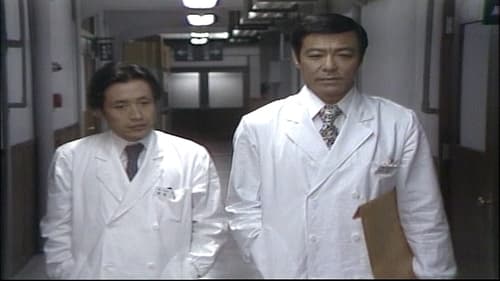
誤診という名の殺人! 人の命を救うはずのメスが、野望のためにみがかれる! 医学界の封建的な人間関係、派閥抗争などを、野望に燃える浪速大学医学部第一外科助教授、財前五郎を中心に描く。

When a corrupt magistrate rapes Oshima, Masa (Raizō Ichikawa) avenges her by killing the officer, becoming thereby a fugitive, haunted and grief-stricken by the fact that Oshima committed suicide. Going underground in the gambling world, perpetually hiding from the law, Masa eventually meets a young woman named Onaka, who looks exactly like Oshima. Tales having two look-alike heroines are a commonplace in Japanese period films, a plot affectation inherited from the kabuki theater. Based on a novel by Shin Hasegawa, Nakayama shichiri was already twice filmed in 1930, one version directed by Namio Ochiai, and from which less than 40 minutes survive, the other directed by Kyotaro Namiki. Both are silent films, preserved by the Makino film institute.

Mrs. Umezu
Obscure Masamura film shot in 1961

Kiyo, the maid
Shikiko Oba is nimble with her fingers and teaches dressmaking and designing. Among her pupils are Rinko, Katsumi and Tomie. Ginshiro, who is as shrewd as the shrewdest of the older generation of dyed-in-the-wool Osaka businessmen, steps into picture and Shikiko soon feels that he is indispensable to her. But the advent of a man in their midst breaks up the harmony that has existed among the four women, as gradually he forces himself on them with promises of love.

Otowa
One of Japan's most popular stories is the tale of Kutsukake Tokijiro, a traveling gambler who finds that he must take care of the wife and child of a yakuza he had been forced by the code of the gamblers to fight man to man. In a brilliant performance from super-star Ichikawa Raizo, with strong support from two of the greats from Toho, Shimura Takashi (7 Samurai) and Aratama Michiyo (Sword of Doom) the heartfelt story reaches new heights. Tokijiro, having learned the true nature of the boss to whom he was obligated for having spent a night and eaten at the gang's headquarters takes up arms against them in a running battle fought across the back roads of the entire nation. Another powerful rendition of this superb story, it is not to be missed!
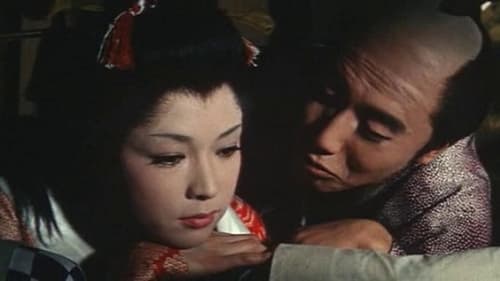
井原西鶴の代表作である同名の浮世草子を、市川雷蔵主演で映画化した作品。
但馬屋のひとり息子・世之介は、父親の心配をよそに放蕩三昧。修業先でも金にまかせて女狂い。ついに勘当された世之介は、頭を丸め放浪の旅に出るが、なおも懲りずに、京都随一とうたわれた夕霧太夫を口説き落とす始末。女体遍歴に命を賭けた男・世之介の華麗な一代記。

Yasuhiko's Mother
In Meiji era Japan a sixth grade boy is smart, likable and confident and owing to his academic success liked by his teacher. Things are not going well at home, however, where his father does not work leaving the mother to toil . With the boy's family having no money he cannot progress his education and has to drop out of school. A neighbour, who is a bookstore owner, offers the family money to allow the boy to continue his schooling, but the father is too proud to accept and rebuffs the offer forcing the boy to work.
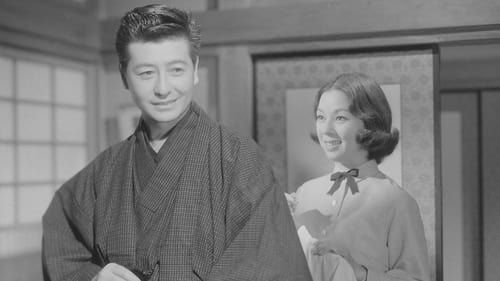
Ko Tanomura, who was ordered to study abroad in the United States for two years as a youth executive at Haneda Airport and a royal industry, was looking for the appearance of Sako Ozegawa from a large number of see-offs. --Kou's father, Cheongju, is an authority on religious studies, and Orie is his third wife. Eiko, who is a distant relative of Orie, came to Tokyo to care for her sick. Two months ago, Ko, who first met Eiko, was deeply moved...

増村保造、市川崑、吉村公三郎という、大映が誇る三大監督によるオムニバス映画。主演の三大女優による競演も話題に。第10回ベルリン国際映画祭コンペティション部門で上映。
「耳を噛みたがる女」銀座のキャバレーでホステスをしている紀美は、客から金を巻き上げては株に投資をしていた。紀美を落とせるか友人と賭けをしていた会社社長の跡取り息子の正巳は、彼女をドライブに誘い出すことに成功する。
「物を高く売りつける女」失踪した流行作家の三原は、湘南の海岸で白い肌の女と出会う。数日後、一軒の別荘の前で彼女と再会した三原は、売りに出しているというその家を、彼女ごと買い取ると申し出た。
「恋を忘れていた女」かつて売れっ子芸妓だったお三津は、京都で修学旅行専門の宿と、酒場とお茶屋を経営する働き者だ。亡くなった夫の妹が結婚資金を借りに訪れるが、財産を横取りされると思ったお三津は、彼女を帰してしまう。

A journalist decides to do his own investigation after a series of strange murders are committed during a local election campaign.

Sugiko Nonomiya
杏子は、ごく普通の家庭である野々宮家の三女。三原商事社長の一郎と結婚している長女の桃子、専務の二郎と結婚している次女の梨子は、三原家三兄弟の三男の三郎と杏子を結婚させようと画策する。勝手に進められる結婚話に腹を立てた杏子は「断然結婚しない」と宣言したが、いつしか相手を意識するように…。
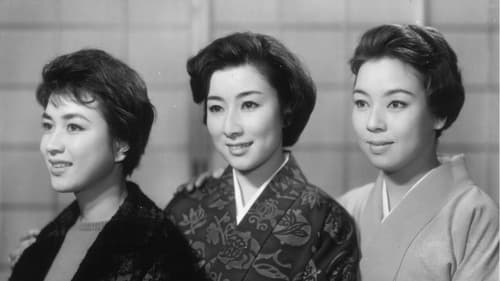
谷崎潤一郎の小説「細雪」の島耕二監督による2度目の映画化。大阪の旧家の4姉妹の日常を描いた日本映画の佳作。大阪の船場の旧家だった藤岡家の4姉妹、鶴子・幸子・雪子・妙子。三女、雪子はその人見知りが災いしてなかなか縁談がまとまらなかった。そんな中新たな縁組みの話が舞い込んできて・・・。

1958 Theater of Life adaptation.
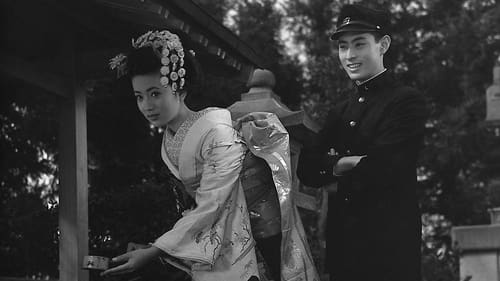
A youth lyrical story of pure love of a girl who grew up in the Kyoto Gion quarter, with a geisha mother and sisters Maiko and a college student.
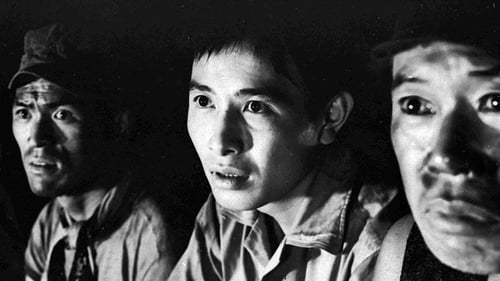
Toshie Sunaga
Based on a 1956 television feature on Japan’s national network, NHK, this is one of Uchida’s rarest films. A socially conscious drama with a contemporary backdrop, Dotanba focuses on the attempts to rescue a group of trapped miners. The title is a figure of speech — (essentially “last minute” or “eleventh hour”) — that refers to a situation of peril. The film boasts a script co-written by Uchida and Akira Kurosawa’s frequent screenwriter, Shinobu Hashimoto, and stars Kurosawa’s frequent star Takashi Shimura.
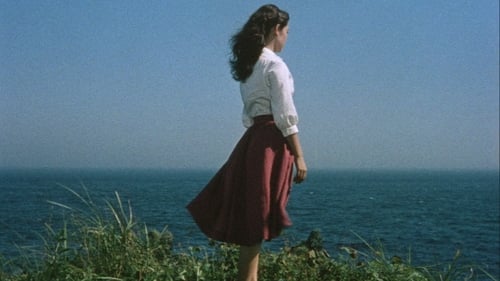
Yuko is sent to the coastal regions to be raised away from the rest of her sophisticated family where she finds out from her ill grandmother that she is not who she thought she was.

Adaptation of the Yukio Mishima novel.

A poor peasant, after years of scraping, becomes a rich and powerful Osaka merchant. Mizoguchi Kenji's final project; he died before completing it and directing duties turned over to Yoshimura Kozaburo.

Directed by Yoshiro Kawazu
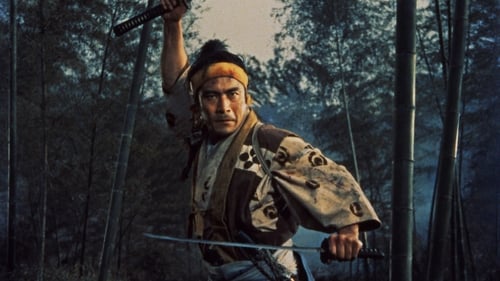
(uncredited)
After years on the road establishing his reputation as Japan's greatest fencer, Takezo returns to Kyoto. Otsu waits for him, yet he has come not for her but to challenge the leader of the region's finest school of fencing. To prove his valor and skill, he walks deliberately into ambushes set up by the school's followers. While Otsu waits, Akemi also seeks him, expressing her desires directly. Meanwhile, Takezo is observed by Sasaki Kojiro, a brilliant young fighter, confident he can dethrone Takezo. After leaving Kyoto in triumph, Takezo declares his love for Otsu, but in a way that dishonors her and shames him. Once again, he leaves alone.

Based on the play ”Mabuta no haha” by famed author Shin Hasegawa, this is the first major starring role for Tomisaburo Wakayama. This heartfelt story concerns a wandering gambler from Banba by the name of Chutaro. Set during the Tenpo Period, Chutaro runs afoul of Boss Sukegoro of Iioka. Pursued by vengeance seeking swordsmen, Chutaro displays his phenomenal martial art skills. Abandoned as a child, he seeks to find his long lost mother, while at the same time fighting off numerous attacks by Iioka’s men.

A young woman decides to leave school in order to help her sister.

Film directed by Eichi Koishi and starring Wakao Ayako

A married couple looking for an apartment move in with the husband's co-worker, a widower. The husband becomes jealous of the widower and his wife.
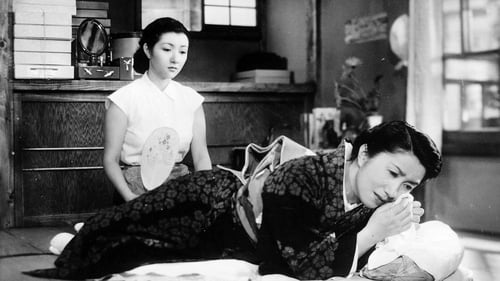
Tome
The story of Kiyoko, a young woman who has successfully managed to make a break with her dysfunctional family who have been trying to arrange a marriage for her with a disagreeable man whom she has rejected.

Soichi Ataka is the eldest son of Ataka family. Although mentally challenged, he's a person with a gentle heart. Soichi's wife, Kuniko is devoted to her husband and together the couple runs the family farm. Their happy family life comes to an abrupt halt when Soichi's half-brother, Joji returns with his wife Masako after failing in a business.

Once an average and seemingly ordinary Tokyo girl, she suddenly finds herself as a TV star owing to her discovery by a casting company, which noticed photographs that her cousin had sent. When another actress falls ill she is given the role instead. Her first film is a success propelling the young actress to popularity, her own fans, money and a house. While everything looks dandy from the outside not all is well within the family however.

Atsuko is an office secretary who is also her family's primary source of income and caretaker in postwar Japan.
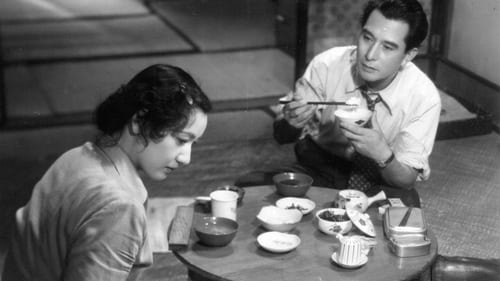
Sumi Takenaka
Michiyo lives in the small place Osaka and is not happy with her marriage, all she does is cook and clean for her husband.

The Stormy Era of Twenty Years

Directed by Senkichi Taniguchi

Jidai-geki about the life of Yasubei Nakayama, a famous ronin who did participate in the revenge against Lord Kira Yoshinaka as detailed in Japan's famous epic Chushingura

Ogin
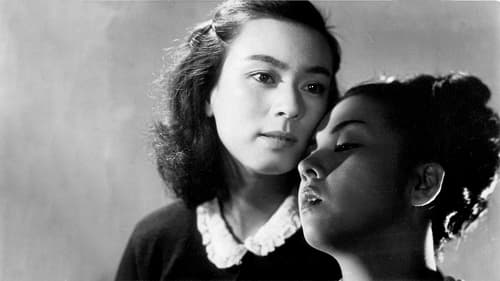
Clothes of Deception initiated Yoshimura’s most characteristic vein. This geisha story is often described as a loose remake of Mizoguchi’s pre-war masterpiece Sisters of Gion (1936), but this is inexact. Whereas in Mizoguchi’s study of two sisters, both women had been geisha, in Yoshimura’s film only Kimicho (Kyo Machiko) is, while her sister works in the Kyoto tourist office. Juxtaposing a traditional Kyoto profession with a modern one, Yoshimura shows how life in the old capital was changing in the wake of wider transformations in Japanese society.

Adaptation of a novel by Yojiro Ishizaka, originally released in two parts.

Kyoko Matsuo
“グランプリ女優”京マチ子の主演作。讃美歌の流れるクリスマスの夜、ゆきずりにも似た男に純潔を捧げた女が、哀しくもたどる背信と罪の世界。再びめぐってこない青春を泥沼に捨てて絶叫する、女の心にふと咲いた恋の切なさを描く。

Melodrama by Kiyoshi Saeki

A grade school in Tokyo, where students curse and gamble, has a pond on-premises with one particular teacher who is in charge and takes care of it. The pond holds a number of carp, but someone is snatching them. Amidst the student, one lives with his mother in poverty. The mother works at a factory whose owner is a member of the parent-teacher association and asks her son to help her employer's son to help with homework. Her son is not happy spending time doing this. Finally one day the teacher finds out who is stealing the carp when the poor boy finds out and reports it. It is a child who is not attending the school.

Family Blossoms

Based on the comic by Kaoru Akiyoshi

Mother and younglings

This film begins with a teacher describing to his students how brave the crew was which died as result of Japan's first submarine accident. The film then follows two of the pupils, one becomes a submarine captain and the other designs submarines.

Goichi's mother - Oren
Tomotaka Tasaka's A Pebble by the Wayside (Robo no Ishi), made in 1938 and taken from a Yuzo Yamamoto novel, takes place around 1902, was about a young boy brought up entirely by his mother since his drunken father is never home. An intelligent teacher wants to send him to middle school, but instead the father apprentices him to a clothing store to which he is in debt. The mother dies and the boy is forced to quit work when his father insults the store owner. Later the boy goes to Tokyo, but only to continue his hardships. First he is forced to do a maid's job at a boarding house and later is used by an old woman to steal at funerals. Finally he is rescued by the teacher, whom he meets in Tokyo.

One of Uchida’s early sound films, Unending Advance is based on a curious story by Yasujiro Ozu, in which an examination of the quotidian problems of a middle-aged salaryman and his family segues into an idyllic dream of an implausible future. The surviving print, although incomplete, offers an essential glimpse into Uchida’s prewar period, when he was associated more with realist dramas than with the period films that dominated his work after the war.

Two brothers run a factory canning crabs. The elder brother Kotaro is righteous and insists on honesty. The younger brother is fixated on money. They are polar opposites. When a boat sails out looking for crab and does not return one day the brothers begin to argue over how to run their facility. They had just received a large order from a foreign country and had obtained a loan from a lender that needed to be repaid.

Film about poet Ishikawa Takuboku

Oshin
Father, son Kentaro and daughter Ochiyo, who live on the banks of the Sumida River, regain their love for each other after family discord and separation. The film is considered lost.

皆川麗子は心にもない無理強いの結婚を避け、岡山の家を出た。東京に着いた麗子は、東京の大学で勉学中のただ一人の心の人、磯村晃に電話をする。磯村は喜びと驚きの声で10分もすればそちらに行けると答えた。しかし改札口が二つあることを知らなかった二人は、それぞれ別の改札口で数時間も待ち続け、ついに会うことができなかった……。

Directed by Tomotaka Tasaka.
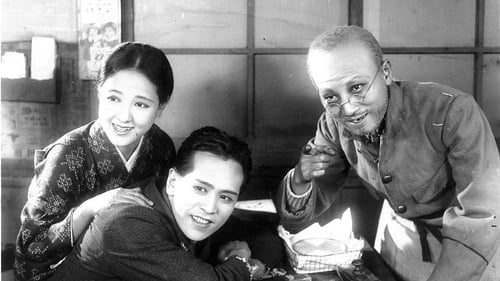
Oshizu
Sweat (1929) is a slapstick riff on tendency-film themes, as a bored young millionaire has his clothes stolen by a tramp; dressed in the tramp’s clothes, he has to accept work as a labourer. As the hero ends up building the mausoleum he had himself commissioned.

Directed by Kenji Mizoguchi.
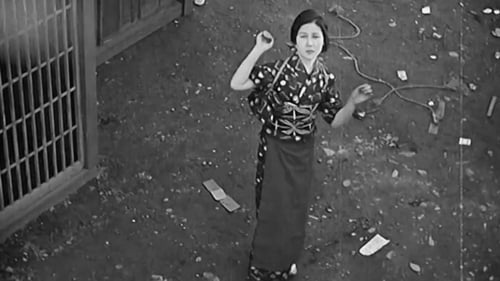
A classic melodramatic love tragedy addressing social inequality in feudal Japan, depicted in Kenji Mizoguchi's typical style. The nostalgic scenes of 1920s Tokyo provides a valuable visual experience set against the background of the title song, "Tokyo March." (Sadly, only 24 minutes of the film now survive.)

Nitta's wife
A twice-remade ironic comedy about a writer's encounter with a female thief.



































